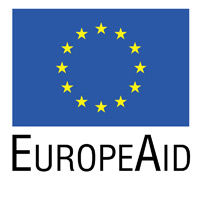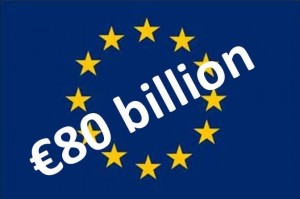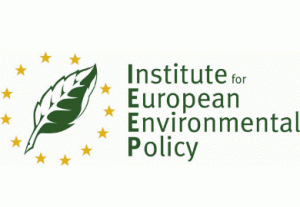 A new study has suggested that the UK, Italy and the Netherlands have under-reported emissions of a potent greenhouse gas HFC-23 which has a global warming potential 15,000 greater than that of CO2. The report, states that Western EU countries produce twice as much of HFC-23 gas as they declare and the lead author – Stefan Reinmann, EMPA, told Research Europe: “it’s a little disturbing that Europe, as one of the most developed regions in the world, is not able to perform a good estimation of its greenhouse gas emissions.” The UK is said to swiftly convert huge quantities of the powerful ‘super greenhouse gas’ 60-140% more than officially reported. Clare Perry of the Environmental Investigations Agency called the situation ‘scandalous’.
A new study has suggested that the UK, Italy and the Netherlands have under-reported emissions of a potent greenhouse gas HFC-23 which has a global warming potential 15,000 greater than that of CO2. The report, states that Western EU countries produce twice as much of HFC-23 gas as they declare and the lead author – Stefan Reinmann, EMPA, told Research Europe: “it’s a little disturbing that Europe, as one of the most developed regions in the world, is not able to perform a good estimation of its greenhouse gas emissions.” The UK is said to swiftly convert huge quantities of the powerful ‘super greenhouse gas’ 60-140% more than officially reported. Clare Perry of the Environmental Investigations Agency called the situation ‘scandalous’.
Category / EU
Welcome to the EU section of the blog! Emily Cieciura (BU’s Research Facilitator – EU and International), Jo Garrad (Funding Development Manager) and Dianne Goodman (Funding Development Co-ordinator) together try to take the pain out of finding and applying for EU funding by horizon scanning many sources and placing the most important information on this page.
We blog as often as possible on everything from calls for proposals and partner searches, to networking event opportunities, all the latest on Horizon 2020 and international funding. We also use the blog to disseminate information on EUADS (BU’s EU academic training initiative), how to write brilliant proposals, how to find partners and other top tips!
Staff Erasmus funding 2011-12
 BU is participating in the EU funded Erasmus Mobility Programme which is part of the EU funded Lifelong Learning Programme. Academic and Professional Services staff can now bid for funding in support of visits to partner universities or enterprises in Europe. Enhance your CV and have a great international experience!
BU is participating in the EU funded Erasmus Mobility Programme which is part of the EU funded Lifelong Learning Programme. Academic and Professional Services staff can now bid for funding in support of visits to partner universities or enterprises in Europe. Enhance your CV and have a great international experience!
The funding isn’t just available for teaching visits, staff can also visit businesses or universities for training. The criteria for the training visits are as follows:
Staff going to an enterprise:
- Learn by transfer of knowledge and to acquire practical skills.
- Activities can also include: language training, seminars, workshops, courses and conferences. These should not account for the majority of activities carried out.
Non-teaching staff visiting a partner university:
- Learn from the experiences and good practices of the partner university and improve the skills required for their current job.
- The main activity is a short stay in the partner institution that may include a short secondment period, job-shadowing scheme, study visit etc.
Teaching staff visiting a partner university:
- Main purpose is to receive training.
- Formal periods of practical training, short secondments etc should account for the majority of the activities carried out.
- Activities can also include: language training, seminars, workshops, courses and conferences. These should not account for the majority of activities carried out.
To apply:
Further information and the form to bid for Erasmus funding is now online at – http://www.bournemouth.ac.uk/about/the_global_dimension/centre_for_global_perspectives/erasmus_staff.html
Deadline:
The deadline for submission of the bids is Friday 28th October 2011
Queries:
BU Erasmus Co-ordinator – Deborah Velay
Email: dvelay@bournemouth.ac.uk
Tel: 01202 965 824
Become an EC Evaluator to increase your chances success and earn spondoolies!
 Becoming an EC evaluator has many benefits – it can improve your understanding of the funding approval process, strengthen your knowledge of the schemes, enable you to understand what makes a ‘good’ and ‘bad’ proposal and can help you gain further kudos in your subject area.
Becoming an EC evaluator has many benefits – it can improve your understanding of the funding approval process, strengthen your knowledge of the schemes, enable you to understand what makes a ‘good’ and ‘bad’ proposal and can help you gain further kudos in your subject area.
Being an Evaluator is basically being a peer-reviewer for the EC, It involves examining proposals for funding against published criteria and providing comments and recommendations to the Commission. You can still apply to the EC for funding if you are registered as an evaluator.
The number of proposals you could review depends very much on your area of expertise and while normally undertaken at home, you can also travel to Brussels to perform a review. Unlike British funders, you will get paid a day rate (up to € 450) for your time, plus travel and subsistence expenses if these have been incurred. You also do not have to review an application just because you are requested.
So what do you have to lose? Register to become an evaluator today.
Education focused EU programmes offering support for collaboration
 There are 7 main Programmes offering support for collaboration related to Higher Education; all which have calls attached to them. These are:
There are 7 main Programmes offering support for collaboration related to Higher Education; all which have calls attached to them. These are:
ALFA:To improve the quality, relevance and accessibility of Higher Education in Latin America and to contribute to the process of regional integration in Latin America, fostering progress towards the creation of a joint Higher Education area in the region and exploiting its synergies with the European Union.
EDULINK:Supports cooperation between HEIs in the EU and African, Caribbean and Pacific States (ACP countries). It represents a harmonised approach to the implementation of EU funded programmes in the ACP countries with a view to improving the effectiveness, management, visibility and impact of ACP-EU cooperation in the field of HE.
Erasmus Mundus: A cooperation and mobility programme that aims to enhance the quality of European Higher Education and to promote dialogue and understanding between people and cultures through cooperation with HEIs in third countries. It supports joint programmes, partnerships and the promotion of European HE.
EU – US Cooperation in HE (ATLANTIS): To promote understanding between the people of the EU and the USA and to improve the quality of human resource development. ATLANTIS supports innovative projects for cooperation in HE and VET which are designed to develop and implement double or joint transatlantic degrees for students in the EU and US and other forms or cooperation including mobility and policy oriented measures
ICI Education Cooperation: EU cooperation with Australia, New Zealand, Japan and Republic of Korea includes bilateral cooperation projects in higher education and vocational training (ICI-ECP).
Lifelong Learning: To reinforce the contribution made by education and training to achieving the Lisbon goal of making the EU the most competitive knowledge based economy, with sustainable economic development, more and better jobs, and greater social cohesion.
Tempus: Supports the modernisation of higher education in the Partner Countries of Eastern Europe, Central Asia, the Western Balkans and the Mediterranean region, mainly through university cooperation projects. It also aims to promote voluntary convergence of Partner Country higher education systems with EU developments in the field of higher education such as the Lisbon agenda and the Bologna process.
Leading Academic encourages UK government to adopt German model of Innovation
 David Payne, Professor of Photonics and Director of the Optoelectronics Research Centre at the University of Southampton has warned in a comment in the Daily Telegraph that substantial and sustained investment is necessary if the UK government wants to restore the country’s manufacturing base. After assessing the challenges faced in converting excellent research into commercial successful products, Professor Payne welcomed the Government’s support for 6 Technology Innovation Centres which will nurture links between academia and industry. However more funds are needed as the £200 million pledged to date is tiny compared with the £1.45 billion a year provided for the network of Fraunhofer centres in Germany which form the blueprint for the proposed UK network. “It would be a shame if this led to distributed ‘virtual centres’ of expertise to appease regional political interests with the consequent management headaches, rather than the single-centred and single-minded Fraunhofer model…I fear we are about to repeat the British thing and spread the money so everyone gets a prize,” he said.
David Payne, Professor of Photonics and Director of the Optoelectronics Research Centre at the University of Southampton has warned in a comment in the Daily Telegraph that substantial and sustained investment is necessary if the UK government wants to restore the country’s manufacturing base. After assessing the challenges faced in converting excellent research into commercial successful products, Professor Payne welcomed the Government’s support for 6 Technology Innovation Centres which will nurture links between academia and industry. However more funds are needed as the £200 million pledged to date is tiny compared with the £1.45 billion a year provided for the network of Fraunhofer centres in Germany which form the blueprint for the proposed UK network. “It would be a shame if this led to distributed ‘virtual centres’ of expertise to appease regional political interests with the consequent management headaches, rather than the single-centred and single-minded Fraunhofer model…I fear we are about to repeat the British thing and spread the money so everyone gets a prize,” he said.
Humanities focused EU Programmes offering support
 There are 14 main Programmes offering support for collaboration related to Higher Education; all which have calls attached to them. These are:
There are 14 main Programmes offering support for collaboration related to Higher Education; all which have calls attached to them. These are:
Civil Justice: To improve contacts, exchange of information and networking between legal, judicial and administrative authorities and the legal professions. There is some scope to support judicial training.
Competitiveness & Innovation: To enhance competitiveness and innovation capacity in the EU, to advance the knowledge society and to ensure secure, sustainable energy for Europe. 3 Sub-programmes i) Entrepreneurship and Innovation Programme (EIP) ii) ICT Policy Support Programme (ICT-PSP) iii) Intelligent Energy Europe (IEE).
Criminal Justice: To promote judicial cooperation; compatibility in rules applicable in the Member States; improve contacts and exchange of information and best practices and improve mutual trust with a view to ensuring protection of rights of victims and of the accused.
Culture: To enhance the cultural area shared by Europeans, which is based on a common cultural heritage, through the development of cooperation activities among cultural operators, with a view to encouraging the emergence of European citizenship.
DAPHNE:To prevent and combat violence against children, young people and women and to protect victims and groups at risk.
Drug Prevention & Information: To prevent and reduce drug use, dependence and drug related harms; contribute to the improvement of information on the effects of drug use; support the implementation of the EU Drugs Strategy
EU – Canada Transatlantic Partnerships: To promote mutual understanding between the peoples of Canada and the EU including broader knowledge of their languages, cultures and institutions and to improve the quality of human resources in Canada and the EU by facilitating the acquisition of skills required to meet the challenges of the global knowledge-based economy.
Fundamental Rights & Citizenship: To promote the development of a European Society based on respect for fundamental rights; strengthen civil society; to fight against racism, xenophobia, and anti-semitism and to promote legal, judicial and administrative authorities and the legal professions, including support of judicial training.
Health: To improve citizens’ health and security; promote health, including the reduction of health inequalities and generate and disseminate health information and knowledge.
LIFE+: To contribute to the implementation, updating and development of EU environmental policy and legislation by co-financing pilot or demonstration projects with European added value.
Media: Focuses on activities before and after production in the audiovisual sector, offering support for training, project development, distribution and promotion. The Programme will also fund measures aimed at supporting digitisation and the changes it is making to the sector.
Prevention of & Fight Against Crime: As part of the general programme ‘Security and Safeguarding Liberties’ this Programme contributes to a high level of security for citizens by preventing and combating terrorism and crime, organised or otherwise.
Progress: Designed to work alongside ESF it supports the EU’s efforts to deliver growth and more jobs whilst fighting poverty and social exclusion.
Youth in Action: To promote young people’s active citizenship in general and their European citizenship in particular; to develop solidarity and promote tolerance among young people; to foster mutual understanding between young people in different countries; to contribute to developing the quality of support systems for youth activities and the capabilities of civil society organisations in the youth sector and to promote European cooperation in the youth sector.
EuropeAid Development & Cooperation Funding
 EuropeAid is responsible for designing EU development policies and delivering aid through programmes and projects across the world. Funding is provided as a grant or a contract focusing on designing EU development policies; governance and human rights; human development; food and natural resources; economy and trade. Grants fall into two categories:
EuropeAid is responsible for designing EU development policies and delivering aid through programmes and projects across the world. Funding is provided as a grant or a contract focusing on designing EU development policies; governance and human rights; human development; food and natural resources; economy and trade. Grants fall into two categories:
1. Grants for Actions: aim to achieve an objective that forms part of an external aid programme.
2. Operating Grants: finance the operating expenditure of an EU body that is pursuing an aim of general European interest or an objective that forms part of an EU policy
Grant calls can be found on the EuropeAid webpage. You can also perform a criteria-based search, using the ‘Advanced Search’ tab and subscribing to the RSS feed will ensure you are kept up to date of calls being released. Contracts are launched as procurements by an organisation wanting to purchase a service, goods or work Contract calls can also be found on the EuropeAid webpage or through a criteria based search, using the ‘Advanced Search’ tab.
Previously awarded grants and contracts can be viewed on this EuropeAid search page which should help familiarise you with the types of project funded.
EC proposes a mammoth €80 billion for Horizon 2020
 The EC has made a proposal for the EU budget for the next programme period (2014-2020). Horizon 2020 is proposed to have a whopping budget of €80 billion – a significant increase on the FP7 budget which stands at €52 billion.
The EC has made a proposal for the EU budget for the next programme period (2014-2020). Horizon 2020 is proposed to have a whopping budget of €80 billion – a significant increase on the FP7 budget which stands at €52 billion.
The proposal calls for the fields of education and vocational training to be strengthened and it is proposed to overcome current fragmentation in the area by creating a new integrated programme for education, training and youth. The budget earmarked for this is €15.2 billion, and the aim is to have a clear focus on developing skills and mobility.
It is also proposed to increase spending on environmental and climate change issues, with spending on climate-related issues to increase by at least 20% compared to current levels.
Institute for European Environmental Policy aren’t happy with Horizon 2020 proposals
 The Institute for European Environmental Policy (IEEP)has published a report on what the implications of Horizon 2020 on research into environmental issues. In the report, they express concerns over the lack of attention given to biodiversity in particular, also resource efficiency and suggest that the scale of funding proposed for infrastructure projects is likely to have adverse effects on the environment.
The Institute for European Environmental Policy (IEEP)has published a report on what the implications of Horizon 2020 on research into environmental issues. In the report, they express concerns over the lack of attention given to biodiversity in particular, also resource efficiency and suggest that the scale of funding proposed for infrastructure projects is likely to have adverse effects on the environment.
It’s official – FP7 has competetive success rates
 FP7 has unfairly gained a reputation as being extremely difficult to obtain. The latest figures released from the EC show that FP7 actually had a success rate of 21% last year (a massive €3.9 billion of research funding was distributed through 63 calls for proposals). Our recent blogpost on Research Councils show that the EC is actually higher than many of our home funders.
FP7 has unfairly gained a reputation as being extremely difficult to obtain. The latest figures released from the EC show that FP7 actually had a success rate of 21% last year (a massive €3.9 billion of research funding was distributed through 63 calls for proposals). Our recent blogpost on Research Councils show that the EC is actually higher than many of our home funders.
The statistically greater chance of success, coupled with the added benefits of gaining EU funding as testified by BU academics such as Sherry Jeary and Dimitrios Buhalis shows that we should all be looking to the EU for funding. If you are a BU member of staff and have an idea for EU funding you want to discuss, drop me an email.
How does the UK do in FP7?
 A report recently released by the EC gives facts and figures on participation in FP7, including participant patterns, proposal evaluation assessments, success rates and review times. There is also a special section on Marie Curie actions and an outline of the top university and industry partners.
A report recently released by the EC gives facts and figures on participation in FP7, including participant patterns, proposal evaluation assessments, success rates and review times. There is also a special section on Marie Curie actions and an outline of the top university and industry partners.
Highlights are that under FP7 funding 10, 524 grant agreements have been signed (involving 58, 945 participants), totalling a whopping 18.5 billion Euros.
The UK does well in FP7, representing 13 of the top 50 academic participants, featuring in the top 20 research organisations who participated and 4 of the top 50 industry partners in FP7 are from the UK. In terms of the amount of funding awarded in successful applications, the UK shows we’re not shy in asking for money, ranking second out of the 27 EU Member States.
What makes a good impact section?
 In writing an FP7 bid the marks allocated for Impact are the same as those for Science & Technological Excellence. So, how do you make sure you score top marks?
In writing an FP7 bid the marks allocated for Impact are the same as those for Science & Technological Excellence. So, how do you make sure you score top marks?
Beta Technology (sponsored by DEFRA) are the UKs National Contact Point for three of the FP7 themes and offer a number of good tips. They’ve also provided real-life examples of a good and not so good Impact Section together with the evaluators’ mark and feedback – these are essential reading for any propective FP7 applicant!
Impact section examples can be found on the I drive at the following address: \\Lytchett\IntraStore\CRKT\Public\Research Blog Docs\Impact Summary
If you would like more information on the impact advice from Beta Technology please contact Shelly Maskell.
Thinking of submitting to FP7 Energy? There is a free support service available!
The deadline for proposals to the FP7-ENERGY-2012-1 Call is 25th October 2011 and the EU Energy Focus team is providing online support sessions, proposal clinic (one to one meetings of 1 hour with a member of the team to discuss your proposal) and proposal review services prior to the this deadline.
Online support session: This will be held on the key aspects of the preparation of a Stage 1 proposal 3- 4pm on Thursday15th September. The online support session will provide you with a comprehensive and interactive presentation on key aspects of the stage 1 proposal preparation and submission process and an opportunity to ask questions. If you would like to join this session please email and you will be sent the telephone conference call dial in details and the weblink where you will be able to view the slides.
Proposal clinic sessions: These are available in London on Thursday 22nd September. Register your interest in attending a clinic session by emailing a proposal summary. They will then allocate the sessions and inform you of the time for your meeting. If you would like to attend a clinic session but are unable to attend on this date in London they will try to accommodate you on alternative dates or at other locations if this can be arranged.
Proposal review service: This service is available between Monday 3rd October and the proposal deadline. Email to express your interest in this. All proposals will be treated as confidential.
FP7 Marie Curie submissions on the up – but so is the budget!
 The Marie Curie scheme has had a significant increase in submissions over the last year. The Intra-Europe and International Outgoing Fellowship submissions were up 17% on last year and the International Incoming Fellowships had an 11% increase in submissions.
The Marie Curie scheme has had a significant increase in submissions over the last year. The Intra-Europe and International Outgoing Fellowship submissions were up 17% on last year and the International Incoming Fellowships had an 11% increase in submissions.
Don’t be put off applying next year however as the increase in application numbers may be offset by the higher budgets in forthcoming calls. The IEF budget is €15m higher than in 2010 and the IOF and IIF budgets €12m higher.
Evaluation summary reports for the 2011 proposals are expected at the end of November 2011, with final results due in December; I will post these on the blog when they are released.
Funding for International Partnering
 RCUK-FAPESP Bilateral Agreement for the International Partnership and Networking Scheme: Under this scheme, bilateral applications which involve international collaborative teams from the UK and the state of Sao Paulo will be considered. The maximum amount of funding available from the ESRC is £25,000. Deadline 12.10.11
RCUK-FAPESP Bilateral Agreement for the International Partnership and Networking Scheme: Under this scheme, bilateral applications which involve international collaborative teams from the UK and the state of Sao Paulo will be considered. The maximum amount of funding available from the ESRC is £25,000. Deadline 12.10.11
EC Cooperation Projects with Third Countries: Grants support cooperation projects aimed at cultural exchanges between the countries taking part in the programme and selected third countries. Funding is worth between €50,000 and €200,000 over a maximum of 24 months. Deadline: 03.05.12
Funding for Environmental Research
 Foundation for Research of Natural Resources in Finland: Grants for Environmental Research: These grants are open to research groups involving talented young researchers for projects promoting the sustainable utilisation of Finnish natural resources. In 2011 the majority of the grants were worth between €30,000 and €50,000. Deadline 30.09.11
Foundation for Research of Natural Resources in Finland: Grants for Environmental Research: These grants are open to research groups involving talented young researchers for projects promoting the sustainable utilisation of Finnish natural resources. In 2011 the majority of the grants were worth between €30,000 and €50,000. Deadline 30.09.11
European Science Foundation Short Visit & Exchange Grants for Climate Change: These grants are for short visit and exchange grants related to climate change manipulation experiments/ Exchange grants are supported with a weekly subsistence allowance of €400 for up to six weeks, plus travel expenses to a maximum of €500. Short visit grants are to last for up to 15 days and are reimbursed on a per diem basis of €85 plus travel expenses to a maximum of €500. Deadline 01.10.11
Funding for Tourism Research
 European Cultural Routes: Believing that in the “niche” market of cultural tourism there is a lot of potential for growth, and believing that EU action could really add value to national, regional and local policies in this field, the overall objective of the present call for proposals is twofold: to contribute to differentiating the European tourism offer, capitalising on the shared cultural heritage; and to contribute integrating both horizontally and vertically the cultural tourism sector, facilitating clusters/networks of both cultural tourism products and enterprises of the cultural tourism sector. Deadline: 07.10.11
European Cultural Routes: Believing that in the “niche” market of cultural tourism there is a lot of potential for growth, and believing that EU action could really add value to national, regional and local policies in this field, the overall objective of the present call for proposals is twofold: to contribute to differentiating the European tourism offer, capitalising on the shared cultural heritage; and to contribute integrating both horizontally and vertically the cultural tourism sector, facilitating clusters/networks of both cultural tourism products and enterprises of the cultural tourism sector. Deadline: 07.10.11
Promoting Social Tourism in Europe: The overall objective of this call for proposals is to support the creation of a web-based platform as a mechanism intended to facilitate transnational tourism, particularly within the CALYPSO target groups; to valorise the potential of off-season availability of accommodation; and to increase the competitiveness of tourism SME’s. Deadline: 14.10.11
EU funding relevant to Health and Media
 National Institute on Alcohol Abuse and Alcoholism – Economic Research on Incentives for Efficient use of Preventive Services: This R01 funding opportunity announcement solicits applications for economic research on the role of incentive arrangements in promoting efficient use of preventive services and interventions, specifically considering both costs and health outcomes. NIH intends to commit approximately $1.6 million in fiscal year 2012 to fund approximately four awards. Application budgets are not limited, but need to reflect actual needs of the proposed project for the maximum project period of five years. Deadline 15.11.11
National Institute on Alcohol Abuse and Alcoholism – Economic Research on Incentives for Efficient use of Preventive Services: This R01 funding opportunity announcement solicits applications for economic research on the role of incentive arrangements in promoting efficient use of preventive services and interventions, specifically considering both costs and health outcomes. NIH intends to commit approximately $1.6 million in fiscal year 2012 to fund approximately four awards. Application budgets are not limited, but need to reflect actual needs of the proposed project for the maximum project period of five years. Deadline 15.11.11
 Healthy Ageing: Funding is available for innovative policies to support healthy, active and dignified ageing and raise the effectiveness and efficiency of spending on social, health and long-term care services and benefits. Deadline 26.09.11
Healthy Ageing: Funding is available for innovative policies to support healthy, active and dignified ageing and raise the effectiveness and efficiency of spending on social, health and long-term care services and benefits. Deadline 26.09.11
 ESF-LiU Travel Grants for Conference on Images & Visualisation – Imaging Technology, Truth and Trust: The conference, to be held from 17 to 21 September 2012 in Scandic Linköping Vast, Sweden, will bring together experts from across the natural and social science with curators, artists, producers and users of images based on advanced visual engineering, in order to explore challenges at the interface between science and visual art. Grants are available to cover conference fees and possible part travel costs for students and early stage researchers. Deadline 06.06.12
ESF-LiU Travel Grants for Conference on Images & Visualisation – Imaging Technology, Truth and Trust: The conference, to be held from 17 to 21 September 2012 in Scandic Linköping Vast, Sweden, will bring together experts from across the natural and social science with curators, artists, producers and users of images based on advanced visual engineering, in order to explore challenges at the interface between science and visual art. Grants are available to cover conference fees and possible part travel costs for students and early stage researchers. Deadline 06.06.12
 Culture Programme: The Culture Programme has been established to enhance the cultural area shared by Europeans, which is based on a common cultural heritage, through the development of cooperation activities among cultural operators from eligible countries, with a view to encouraging the emergence of European citizenship. The Programme is aimed at three specific objectives: promotion of the trans-national mobility of people working in the cultural sector; support for the trans-national circulation of cultural and artistic works and products; and promotion of inter-cultural dialogue. The Programme has a flexible, interdisciplinary approach and is focused on the needs expressed by cultural operators during the public consultations leading up to its design. Deadlines are: 15.09.11, 05.10.11, 16.11.11, 03.02.12, 03.05.12
Culture Programme: The Culture Programme has been established to enhance the cultural area shared by Europeans, which is based on a common cultural heritage, through the development of cooperation activities among cultural operators from eligible countries, with a view to encouraging the emergence of European citizenship. The Programme is aimed at three specific objectives: promotion of the trans-national mobility of people working in the cultural sector; support for the trans-national circulation of cultural and artistic works and products; and promotion of inter-cultural dialogue. The Programme has a flexible, interdisciplinary approach and is focused on the needs expressed by cultural operators during the public consultations leading up to its design. Deadlines are: 15.09.11, 05.10.11, 16.11.11, 03.02.12, 03.05.12











 Upcoming opportunities for PGRs – collaborate externally
Upcoming opportunities for PGRs – collaborate externally BU involved in new MRF dissemination grant
BU involved in new MRF dissemination grant New COVID-19 publication
New COVID-19 publication Conversation article: London Marathon – how visually impaired people run
Conversation article: London Marathon – how visually impaired people run MSCA Postdoctoral Fellowships 2024
MSCA Postdoctoral Fellowships 2024 Horizon Europe News – December 2023
Horizon Europe News – December 2023